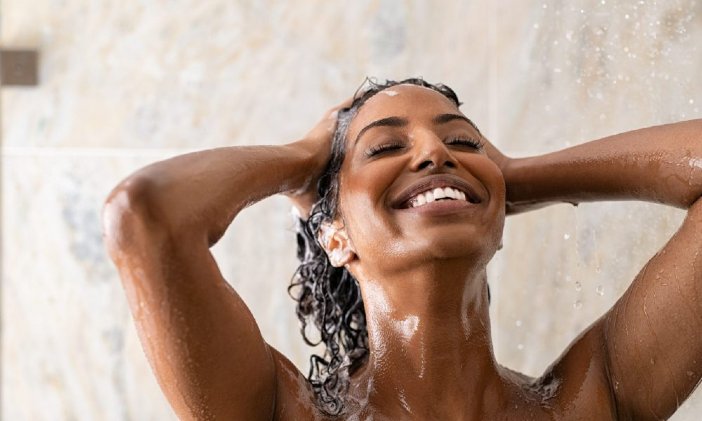There has been a debate on the harm sulfate shampoo cause to the hair rather than clean and shine it. Naturally, an alternative from the lather-creating shampoo is needed. That is why the gentler shampoo is sulfate-free. The reason there is a shift away from sulfate shampoo is that it irritates and is harsh to some scalps. This also includes the fact that it also drains nutrients in the hair, leaving it perched.
Sulfate can be used on the skin and hair as it can be used for other cleaning products, but there are some extremes to it that may pose a threat to the hair. This is the case for some who wear their hair naturally.
If you are seeking an alternative to this type of shampoo, you can go for a sulfate-free shampoo. This article will be your guide in buying the right sulfate-free shampoo and how to go about it.
Shopping Guide
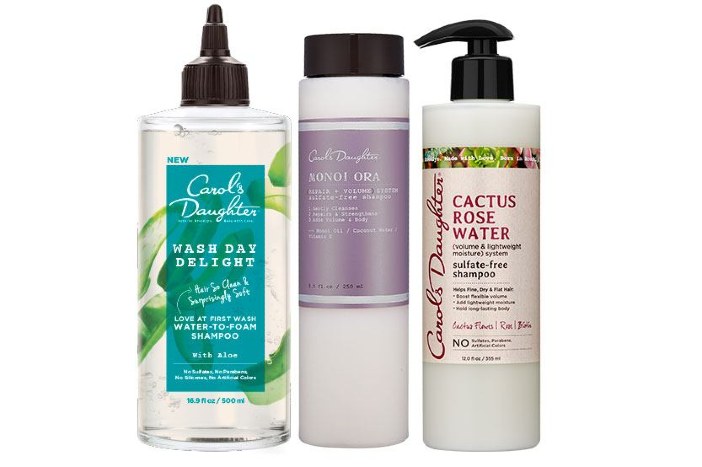
So now you have decided to switch to something milder and less harsh on your hair. You might be overwhelmed with the information on the internet and not know where to start from. This section of the article will guide you through everything you need to know before purchasing your own shampoo.
What is sulfate?
To know why you have to avoid it, you must understand it. Sulfates chemicals are under a class of cleaners called anionic surfactants used in cleaning away substances. They are basically household cleansing agents added to shampoos, soaps, detergents, and cleaners. Sulfate is a staple compound in the beauty industry and can be found in many products for hair.
When a shampoo or soap easily foams after contact with water, then it is likely to have sulfate as an ingredient. Sulfate works by grabbing onto grease, grime, or filth and then washing it away. It’s very easy to acquire and the products that contain sulfate are not expensive.
The downside of sulfate is its ability to also wash away natural oils from the hair, causing the hair to become dry and brittle. The chemical can be aggressive to hair and might even cause damage or relapse in your hair care routine. Therefore, if the scalp or body of the user is too sensitive, it might likely cause irritation or redness.
How can I spot if my shampoo contains sulfate?
Sulfate is not hard to spot in a shampoo, so you need not be afraid. Also, you should note that the word sulfate will not be written on the ingredient’s list. There are different types of sulfate chemicals that can be used in shampoos. The sulfate is named based on the type used in the shampoo.
There are various types of sulfates. Therefore, you should take time to read the ingredient list for any possible signs of the foam-creating chemical. The two most common types of sulfate found in shampoos include Sodium lauryl sulfate (SLS) and sodium Laureth sulfate (sles). You should look out for these names on the ingredient list before you buy your shampoo.
Other common and yet uncommon sulfate include:
- Sodium Lauroyl Isethionate
- Sodium Lauroyl Sarcosinate
- Ammonium Laureth Sulfate (asl)
- Sodium Alkyl Sulfate (SAS)
- Sodium Lauroyl Taurate
- Disodium Laureth Sulfosuccinate
- Sodium Lauryl Sulfoacetate
- Sodium Lauroyl Methyl Isethionate
Why is sulfate-free shampoo my other option?
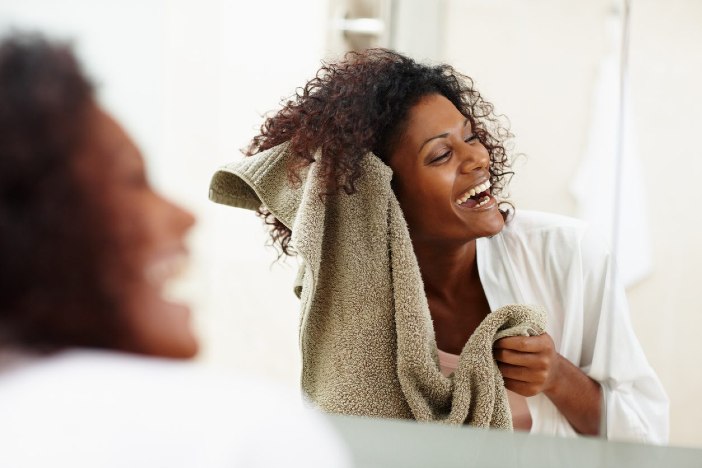
You might be wondering what all the fuss is about with sulfate shampoos if they do their job sell and are safe to use. It’s not that the chemical is not safe and effective for use. In fact, it is too effective, which is why it is harsh and irritates the skin or scalp. That is why other alternatives or sulfate-free shampoos were produced to cater to those who react to the shampoo.
Also, excess use of sulfate can be harmful to the scalp, especially for those who have sensitive skin or scalps. People with skin problems like seborrheic dermatitis can also suffer a reaction from sulfate products. Sulfates can cause long-term damage to the hair, causing a breakdown of the hair.
Although there are people who do not react to sulfate products, there is the likely possibility they may suffer from peeling or itching scalps, but may not know why. If you fall under these categories, you might need to change to a sulfate-free shampoo to avoid hair problems.
What are the hair types good for sulfate-free shampoos?
Sulfate-free shampoos are created for all possible hair types. This includes dry, oily, curly, thick, light, and colored hairs. But sulfate-free shampoo is mostly recommended for those who are trying to treat their recently damaged hair.
People wearing colored hair should use sulfate-free shampoo because it keeps their colors and does not wash it away unlike sulfate shampoos. For dry or frizzy hair, they need to maintain their natural oils and sulfate-free shampoo will do that. It will protect the oils and nutrients the scalp and tresses need, which will give the hair moisture.
Also if you are the type that washes their hair all the time due to one reason or the other, you might have to reconsider sulfate shampoo. As we said, sulfate shampoo has a long-term effect on hair. But with a sulfate-free shampoo, you will be going easy on your hair.
What are the advantages and disadvantages of using sulfate-free shampoo?

Using sulfate-free shampoo means you won’t have to worry about your scalps. Even though the shampoo is good for everyone, especially children and sensitive scalps, there are still drawbacks you might experience. You have to know the advantages and disadvantages of the product to influence your decision-making.
Advantages
- Doesn’t harm natural oils in the scalp
- It reduces frizz
- The shampoo doesn’t harm the skin
- The shampoo makes the hair strong and shiny
- It is good for preventing dandruff
- It helps to prolong the effect of keratin
- You won’t get an allergic reaction to the oil
- It is also environmentally-friendly.
Disadvantages
- It foams and lathers less
- Does not remove as much oil as normal shampoo
- You have to work harder getting it in your hair
- It is more expensive than the normal shampoo
- It does not remove silicone.
Why does the normal shampoo dry hair out?
Normal or conventional shampoos leave the hair drier after use. This is because they contain sulfate. Though they leave the hair feeling clean, the sulfate in the shampoos averts the production of oils on the hair and scalp. This will make the hair off balance and the clean effect will not last long.
Conventional shampoos cause this dryness in the scalp and hair and at the same time offer the solution to them. On the other hand, if you are switching to a sulfate-free shampoo, you might feel your hair being dry but it’s only because it is your first time. The dry-effect won’t last very long.
The hair is just going through a natural detox process. It is best you use accompanying products with lots of hydrating and moisturizing effects to balance it out while the hair goes through this detox. You can use a hair mask to boost the extra hydration your hair needs during this time.
What are the other ingredients that can be harmful to my scalp and hair?
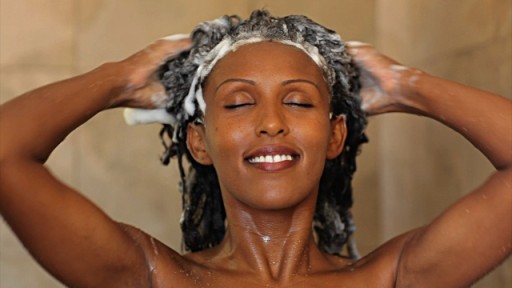
Sulfates are not the only ingredients in a shampoo or other hair products that can be harmful to the hair. These ingredients are what you should look out for when buying a sulfate-free shampoo. This is because they are not supposed to be in it in the first place. Remember that sulfate-free shampoos are mostly natural and environmentally-friendly. Some of the harmful ingredients include:
Silicones: Dimethicones are the silicones most commonly found in shampoos, conditioners, and hair masks. The products that claim to have a hydrating effect on the scalp and hair might have this ingredient. Rather than hydrate, the hair will feel soft at first, and later the pores will be blocked by the silicone. Once the hair pores are blocked it will become harder to receive nutrients.
Parabens: Parabens are said to not be good for the body because a study published highlighted that they can cause hormonal alterations and breast cancer. You should watch out for the common parabens methylparaben and propylparaben.
Sodium chloride: Shampoos naturally contain salt that adds consistency to the product. Only this is double-edged as salt also dehydrates the scalp and skin. It could cause the hair to become flaky and itchy.
Synthetic dyes: If you are using dyed-hair shampoo, you should look out for this type of ingredient. It can cause the scalp to become sensitive and easily irritated.
Lanolin: This is a wax type with water-repellent properties in them. It is mostly used in products meant for dry hair. But they contain alcohol which can cause allergic reactions to the users.
Don’t like shampooing everyday? Try co-washing your hair as a better alternative.
Shopping Criteria
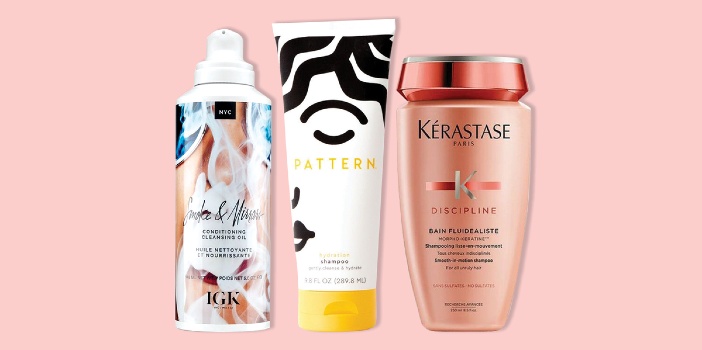
There are things you have to take note of if you have decided to purchase a sulfate-free shampoo. These criteria will influence your final buying choice. The factors are all important and should be kept in mind when buying a sulfate-free shampoo.
Bottle Size
Sulfate-free shampoos are not cheap, so the bottle size is important when buying one. Always pay attention to the description of the bottle and not what is advertised. Most times advertisement plays a trick on us with the size of a product.
Also, because of its high price, manufacturers always make sure their consumers get enough of their money’s worth. You will find most bottles of shampoo with a size of up to one liter. You will also be doing a great service to the environment if you go for big bottles of shampoos than the smaller ones.
Local Production
In the U.S., most products are now bought online and shipped around the country. If you are an advocate of healthy self-care and saving the environment, you might have a conflict of interest when trying to shop online. You can ease yourself out of this by shopping for locally produced shampoos. This way, you won’t have to worry about the transportation of your product in a non-environmentally-friendly way.
Use and Hair Type
Sulfate-free shampoos have various types that go with various hair types and textures. Its market is ever-expanding and it leaves room for more to be discovered. The shampoo has a range of products to suit different hair types so none is left out.
For instance, dry hair can go for shampoos that have nutritious and hydrating ingredients like avocado, olive oil, or almonds. Curly hair can opt for shampoos that would shine and define the curls of their hair. There are shampoos that regulate oil production for oily hair. And dyed hair can go for sulfate shampoos that have color intensifiers to help the color stay intact.
Harmful Ingredients
This is another criterion you should consider before buying your sulfate-free shampoo. What’s the use of buying a sulfate-free shampoo when it contains other harmful ingredients? Though most of them do not contain any other harmful ingredient, you should still keep an eye out for such ingredients.
Always take your time to read the ingredient list of the shampoo. Note what’s in and what’s not, especially with the list we mentioned above. It might be hard recognizing the chemical names but make the effort because hair care matters.
Recommended Sulfate-Free Shampoos
1 Best Sulfate-Free Shampoo for Natural Hair
Natural hairs need deep cleansing as they need moisture. Cantu shampoo’s main ingredient is shea butter, used to clean the follicles and tresses gently and soothingly. It’s most especially good for thick hair that buildup grime easily. You can use it without having to worry about your hair breaking.
2 Best Color-Treated Sulfate -Free Shampoo
L’Oréal Ever Pure Shampoo is best for color-treated hair as it maintains the color and also hydrates and moisturizes the hair. The shampoo is good for those with rigid color-treated hair as it makes it soft and retains the nutrients while removing grime.
3. Best Overall Sulfate-Free Shampoo
The two-set shampoo and conditioner Bellisso offers keeps the hair silky and smooth. It has natural ingredients that would restore, nourish, and shine, and protect your hair. It also has ingredients like keratin and Moroccan argan oil that work well for the hair roots.
The conditioner contains collagen, vitamin B5, and protein, which helps in moisturizing the hair and keeping the moisture locked in. The two together are excellent for restoring hair texture. If you are experiencing really dry and frizzy hair or hair breakage, you can add this shampoo and conditioner set to your hair care routine.
Summary
Sulfate shampoos are conventional shampoos. Though they are safe, they might still be harmful to some users. That is why alternative sulfate-free shampoos exist. Not only do they not contain sulfate, but other harmful compounds also may not be found in them.
Sulfate-free shampoos help to keep the natural oils in the scalp and hair, maintains keratin level, and also shines the hair without frizz. You will also be playing your part in keeping the environment clean because they are mostly natural. Sulfate-free shampoos also boost the hair and are less itchy or irritating but they can be very expensive.
Choosing a sulfate-free shampoo is a choice you won’t regret because you will be saving your hair from long-term damage. And if you care about your hair’s health, sulfate-free shampoo is your best choice.
Most Beautiful Girl Online will help you make the best choice for hair and beauty products with detailed articles on them. Browse through more of the articles and be sure to leave a comment.
